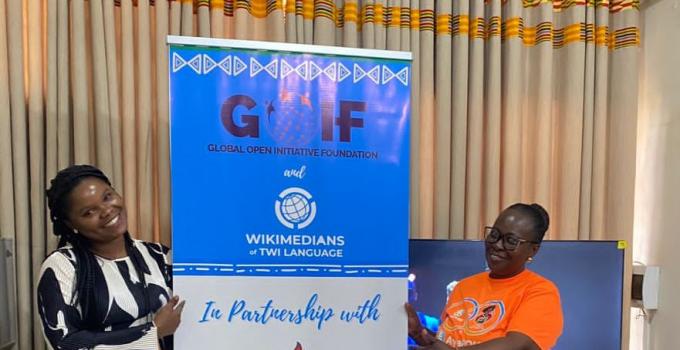AfroCuration Ghana 2025: Rewriting Africa’s Digital Story in Local Languages

By: Gariba Awontemi Naomi
In an inspiring push for digital cultural preservation, AfroCuration Ghana 2025 gathered more than 80 language advocates, academics, and tech-savvy youth at the Kwame Nkrumah University of Science and Technology (KNUST), for an intensive workshop on preserving Ghana’s linguistic heritage in an ever-evolving digital age.
Together, they produced and enriched Wikipedia content in seven Ghanaian languages—Twi, Dagbani, Gurene, Moore, Ewe, Kusaal, and Dagaare—taking a bold step toward closing Africa’s digital representation gap.
Centred on the theme “Who We Are: Showcasing Diversities in African Arts and Aesthetics,” the event highlighted the importance of indigenous languages in documenting Africa’s rich cultural legacy on the world’s largest online encyclopaedia.
Reclaiming African Narratives Through Language
Participants had hands-on training to write, edit, and translate Wikipedia articles on African art, traditions, and historical figures, ensuring accurate representation in local dialects. The initiative underscores how language shapes identity and why digital spaces must reflect Africa’s linguistic diversity.
Professor Opanin Kofi Agyekum (University of Ghana) delivered a powerful keynote, condemning the decline of native languages:
“Every child has the right to speak their mother tongue. Denying them this is denying their heritage.”
His words resonated deeply with the audience, framing language loss as both a cultural crisis and a human rights issue.
A United Front for Digital Inclusion
The event was organised by the Wikipedia members of the Twi Language User Group, with backing from the Global Open Initiative Foundation and funding from the Wikimedia Foundation. Key collaborators included:
- KNUST’s Department of Language and Communication Sciences
- University of Education, Winneba (Ajumako Campus)
Dignitaries inverted were:
- Nana Krobea Sarfo-Asante, Development Chief of Asuoho Konkomba
- Professor Charles Ofosu Marfo, Provost of KNUST’s College of Humanities and Social Sciences
- Dr. Patience Obeng of UEW
- Dr. Mrs. Victoria Faleke, Head of KNUST’s Department of Language and Communication Sciences
The Head of Department for Language and Communication Sciences, Dr. Victoria O. Faleke, delivered a thought-provoking analysis, linking language erosion to colonialism’s three phases, as depicted in Chinua Achebe’s Things Fall Apart.
She explained how the suppression of indigenous languages was a tool of control and stressed that reclaiming them is an act of decolonialism.
The Fight for Africa’s Digital Footprint
Jemima Antwi, Project Lead, highlighted Wikipedia’s role in correcting historical imbalances:
“If we don’t tell our stories, others will—and often inaccurately. This is our chance to control the narrative.”
Harriet Henry Bayel (Global Open Initiative Foundation) echoed this urgency, calling AfroCuration a “countermovement” against the digital extinction of African languages.
A Movement Bigger Than Wikipedia
Launched by the Moleskine Foundation, AfroCuration blends art, technology, and activism to equip African youth with the tools to safeguard their heritage online.
With Wikipedia shaping global knowledge, AfroCuration Ghana 2025 sent a clear message: African languages deserve a seat at the digital table, not as relics of the past, but as living, evolving mediums of knowledge.